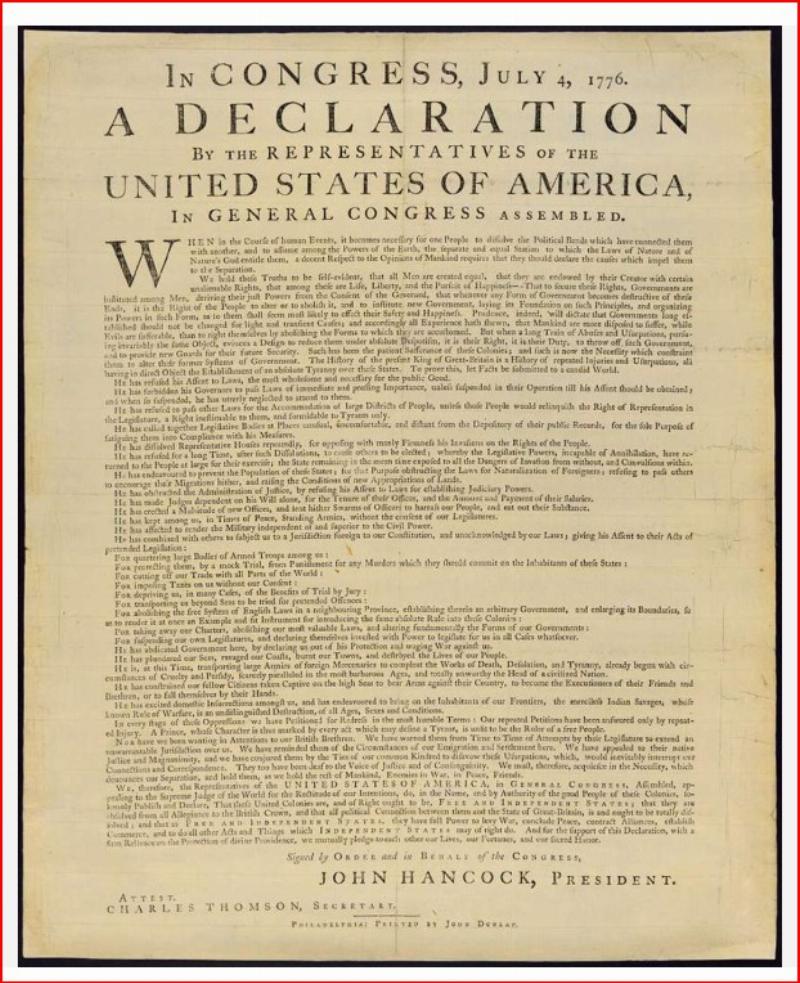


Question: Is it possible to build a strong nation on a foundation of skepticism, distrust of authority?
And if so, where has it been successful, and if that is the case, can it continue unabated? The short answer is: quite a few nations, but nowhere is it more apparent than in the United States of America.
Since its inception, the United States has always been a nation of people who were tired of being told what to do by a foreign entity that had abused its power and authority since the early 1600s and increased markedly until the Revolutionary War changed the political landscape for good.
The frustration of our forebears, who felt a profound lack of self-determination with their British "parent" created a deep distrust of authority and an equally intense skepticism as it related to monarchial rule and the politics that revolved around centralized power. That is, quite simply, too much power held in too few hands is (or was) a surefire recipe for revolution.
That is why the separation of powers into three co-equal branches of government was such a creative solution to what had been an abusive, autocratic, elitist rule by a select few.
That is not to say that the adoption of the U.S. Constitution immediately converted those who were mistrustful and skeptical into true believers of an unproven governance model.
It did not, because neither the Constitution nor the republic could eliminate greed. Yes, the king was dead, but a new kingdom of the power elite which included huge land grant holders and other wealthy individuals moved into positions of authority, because power and authority vacuums are the quickest to be filled. And people, being people, always bring their own self-interests and special interests into everything they do, especially after they have achieved power or position.
The new Americans hung on to their healthy distrust of authority and retained a large portion of their skepticism, voicing their opinions through the voting franchise instead of disagreeing by musket ball.
Fortunes were made, power was consolidated (and some spread around) based on the now firm belief in individuals' rights to work, prosper and retain their earnings. The American dream flourished as did the wealthy class's bankbooks, but so did the mistrust and skepticism that was now based on a divided country which spawned a "them and us" mentality that ultimately lead to a civil war less than a century later.
Before we fast forward to the present and the future of distrust and skepticism, we must acknowledge the important role that religion played in forging the new America. Were it not for religious believers, I would argue that lawlessness and greed would have taken over and turned mistrust and skepticism into internecine violence. Thankfully, God had the upper hand and Americans willingly adhered to a higher authority, one that they had been taught they could trust. But as said, America's Civil War lay in wait which saw Americans kill 600,000 of their own. Religion couldn't control the forces of mistrust, and it was pushed into a smaller and less visible corner of Americans' lives. It could only advise and occasionally condemn, but that was it. No Papal Swiss Guard. No standing army of the righteous to defend life, just Sunday preachers delivering sermons to the faithful, ignoring those who needed their wise words most … the skeptics, the agnostics and the atheists.
Somehow America pushed on. We found and lost our faith from time to time but retained what we now call a "healthy skepticism and distrust of authority."
But these are the real questions: "Can the U.S. pursue its path of unending ideological conflict that has seen major movements of Americans relocating to "red" from "blue" states, states that actively oppose one another, not only in elections, but also in public policy? And if this were to continue, would it not injure our nation as a whole?
Is distrust of authority and skepticism of each other's real motives just one small step from a total rejection of authority which would send the U.S. on a downward path to dissolution or separation into a Bifurcated States of America?"
This is the real clear and present danger.
Have distrust of authority and skepticism of one anothers' motives moved us closer to splitting the political sheets and would the prospect of such a schism happening justify America's Executive Branch inching towards something that looks like an autocracy, whereby decisions affecting all Americans are made by executive fiat?
Some would say that we are already there and that there is no turning back.
They also say that distrust is now an inseparable part of Americans's DNA and unless we govern with a firm patriarchal hand and suppress the forces that are actively working to separate us now that any future separation would be even more catastrophic to the Union.
That may be the belief of, rationale and the underpinning for, the decisions now being taken by the Executive Branch of the current administration.
But governing by decree did not help the British in the mid-18th century. It led to their demise as a governing power.
I would posit, that unless the Trump administration begins to make its case to the American people and encourages the Congress to debate its plans to "Make America Great Again" and sends such plans to that body to formulate into actual legislation, it will not achieve its objectives.
Admittedly, this is risky for the Trump agenda, but not taking this risk will only intensify the distrust and skepticism that is reaching the boiling point in the American political cauldron.
Image: Library of Congress, via Picryl / public domain
